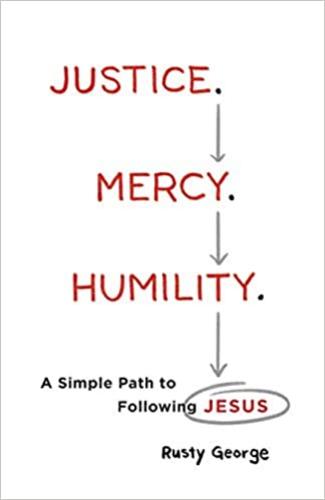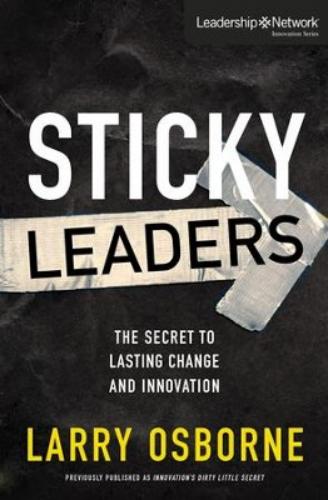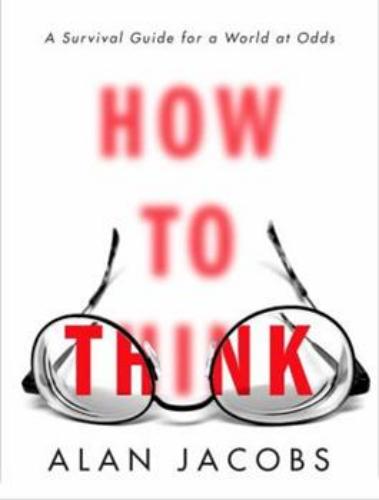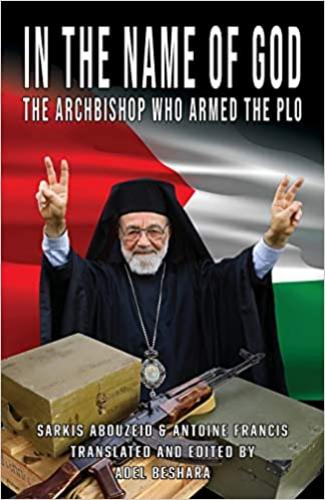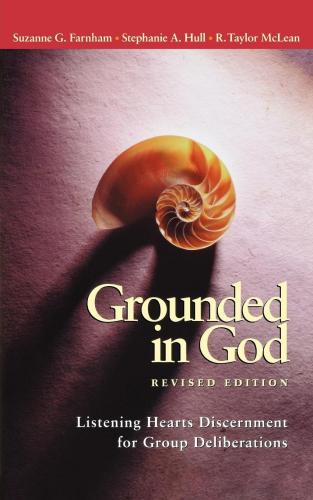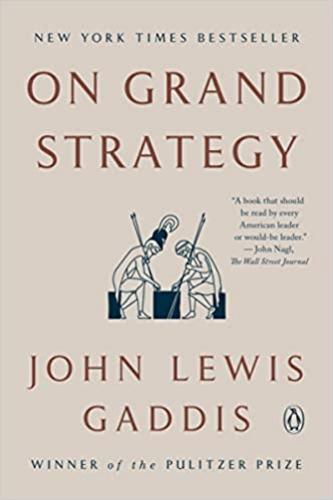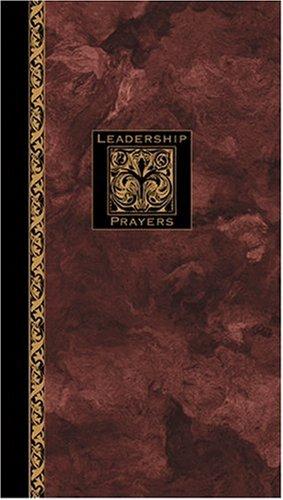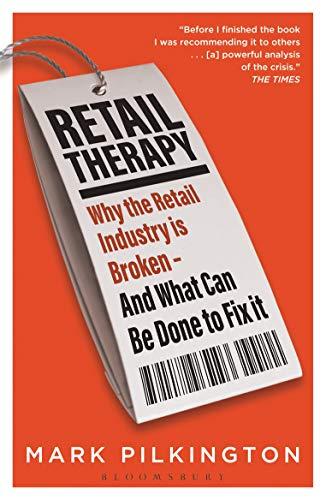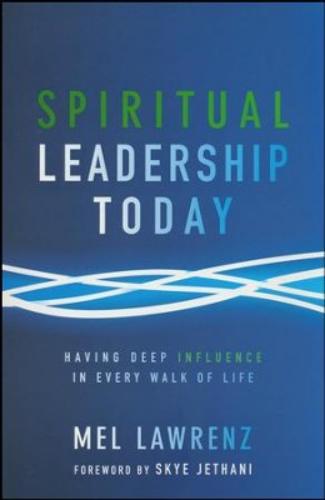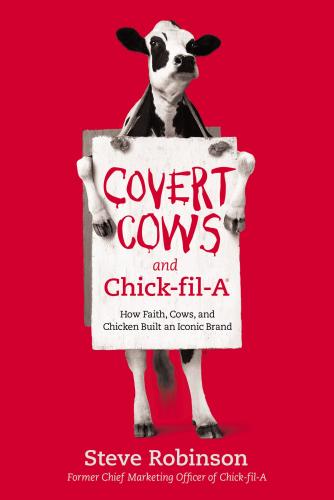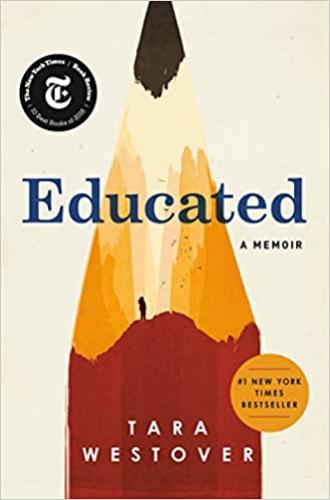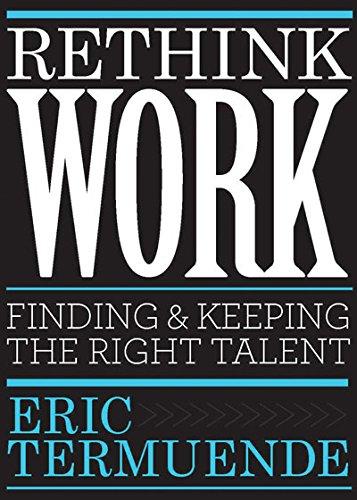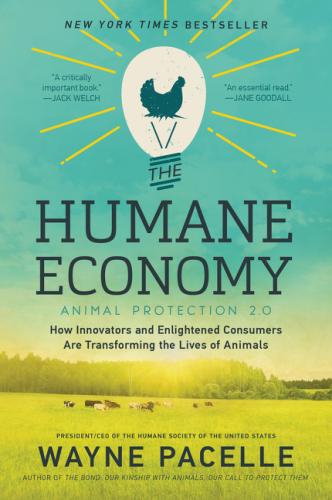More than two thousand years ago, the prophet Micah implored Israel to return to its true calling: "Act justly, love mercy, walk humbly with your God." Could this plainspoken Bible verse not only sum up how we should live today but breathe a fresh purpose into our souls?
In this practical and freeing book, pastor Rusty George shares the simplicity of what God desires from us. Living a faithful life should not be a chore, and George teaches how to put away our checklists and walk humbly according to God's will for our lives.
Many believe that trailblazers are destined to thrive---but often it's quite the opposite. Helping you foster an environment of successful innovation, Osborne shows how to effectively work through major changes while avoiding common mistakes, breaking through ceilings of complexity and competency, steering around pitfalls of growth, and more. Previously titled Innovation's Dirty Little Secret.
"Absolutely splendid . . . essential for understanding why there is so much bad thinking in political life right now." —David Brooks, New York Times
How to Think is a contrarian treatise on why we’re not as good at thinking as we assume—but how recovering this lost art can rescue our inner lives from the chaos of modern life.
As a celebrated cultural critic and a writer for national publications like The Atlantic and Harper’s, Alan Jacobs has spent his adult life belonging to communities that often clash in America’s culture wars. And in his years of confronting the big issues that divide us—political, social, religious—Jacobs has learned that many of our fiercest disputes occur not because we’re doomed to be divided, but because the people involved simply aren’t thinking.
Most of us don’t want to think. Thinking is trouble. Thinking can force us out of familiar, comforting habits, and it can complicate our relationships with like-minded friends. Finally, thinking is slow, and that’s a problem when our habits of consuming information (mostly online) leave us lost in the spin cycle of social media, partisan bickering, and confirmation bias.
In this smart, endlessly entertaining book, Jacobs diagnoses the many forces that act on us to prevent thinking—forces that have only worsened in the age of Twitter, “alternative facts,” and information overload—and he also dispels the many myths we hold about what it means to think well. (For example: It’s impossible to “think for yourself.”)
Drawing on sources as far-flung as novelist Marilynne Robinson, basketball legend Wilt Chamberlain, British philosopher John Stuart Mill, and Christian theologian C.S. Lewis, Jacobs digs into the nuts and bolts of the cognitive process, offering hope that each of us can reclaim our mental lives from the impediments that plague us all. Because if we can learn to think together, maybe we can learn to live together, too.
Combining a survey of the history and purposes of Christian higher education, critical approaches to faith-learning-living, and practical lessons for teaching, scholarship and service, The Soul of a Christian University assists faculty and administrators in educating hearts and minds.
Author and editor, Stephen J. Beers, is a Vice President at John Brown Univeristy. Other contributors include: Norris Friesen, Huntington University; Tim Herrman, Taylor University; Darryl Tippens, Pepperdine University; Wendy Soderquist Togami, John Brown University; Jane Klosterman Beers, John Brown University; Eileen Hulme, Azusa Pacific University; Thomas Jones, Taylor University; Paul Kaak, Azusa Pacific University; Kina Mallard, Gordon College; Rick Ostrander, John Brown University; Todd C. Ream, Indiana Wesleyan University; Mark Sargent, Gordon College; Mark Troyer, Asbury College; Skip Trudeau, Taylor University; Brian Clark, Indiana Wesleyan University.
210 pages
This book is a biographical account of a very eventful and stormy period of the occupation of Palestine, told by the late Archbishop of Jerusalem, Hilarion Capucci. Capucci explains how he joined the ecclesiastical hierarchy and why he became intimately involved with the Palestinian struggle to regain their homeland.
In an “honest-to-God” trip into the dark side of Israeli occupation, he exposes its crimes and excesses before the world. Capucci speaks openly about smuggling weapons and explosives for the PLO, his eventual arrest, trial and imprisonment in Israel, and his friendship with PLO leader Yasser Arafat.
The narrative reveals the mind-set of a very determined and principled man of religion who was undaunted by fear and driven forward by faith for the sake of his people.
This powerful, prayerful, and practical guide teaches groups a whole new way of conducting meetings and reaching consensus. Whether your group, committee or board is secular or religious, its members can now move beyond parliamentary procedure to a higher level using the model described here. Rooted in scripture, Grounded in God energizes and inspires.
Learn how to incorporate creative silence, imagination, intuition, attentive listening, scripture, and prayer into routine meetings, decision making, or working retreats. By opening up to new perspectives, discover that the first order of business is to become attuned to God's presence within those assembled.
As members of the group become receptive to alternative viewpoints, they are opened to tap into the flow of divine wisdom and align with the will and mind of God. The results can be both spiritual and practical as they are put into action.
For almost two decades, Yale students have competed for admission each year to the "Studies in Grand Strategy" seminar taught by John Lewis Gaddis, Paul Kennedy, and Charles Hill. Its purpose has been to prepare future leaders for responsibilities they will face, through lessons drawn from history and the classics. Now Gaddis has distilled that teaching into a succinct, sharp and potentially transformational book, surveying statecraft from the ancient Greeks to Franklin D. Roosevelt and beyond. An unforgettable guide to the art of leadership, On Grand Strategy is, in every way, its own master class.
An ideal gift book for leaders, features 30 heartfelt prayers, insightful reflections, and Scripture.
Almost weekly, the news is full of stories about disappearing retail chains. From House of Fraser and BHS to Toys'R'Us and Sears, recognised names are vanishing overnight – as such large organizations disappear, so the malls, shopping centres, high streets and main streets become emptier and less appealing to visit.
The retail sector is hugely important in terms of job numbers: in the US, it employs around 30 million people (directly and indirectly); in the UK, around 10 million. As such, anything that jeopardises the retail sector will have a deep and lasting impact on millions of lives, as well as on public policy. While many blame the 'Amazon effect', this is an oversimplification. Deeper forces are at work that are changing people's relationships with brands, the balance of power between producers and consumers, and the whole nature of the supply chain that has existed since the industrial revolution.
Retail Therapy offers a comprehensive analysis of these forces and their impact on the world of retailing. More importantly, it presents a cogent analysis of the longer term trends that are shaping retailing, and outlines a clear road map for sustainable success in the future.
Drawing from more than thirty years of experience in pastoral ministry, Mel Lawrenz's Spiritual Leadership Today: Having Deep Influence In Every Walk of Life provides a fresh look at leadership that offers practical and biblical guidance to believers who want to have a deep influence and who want to know: What is the proper use of authority and power? Where do good ideas come from? How can we deal with failure? What does God expect of us?
Written for Christians in any position of influence, Spiritual Leadership Today provides a new baseline for 21st century Christian leadership, addressing issues such as:
building integrity
seizing opportunities
exploring new horizons
speaking into crises
receiving power
accepting authority
promoting truth
managing expectations
dealing with criticism
Using real-life examples, key Scripture passages, and history, Lawrenz shows that when believers align their responsibility to lead with the teaching of Jesus and the work of God's Spirit, their spiritual influence will have integrity and enduring effectiveness.
The longtime chief marketing officer for Chick-fil-A tells the inside story of how the company turned prevailing theories of fast-food marketing upside down and built one of the most successful and beloved brands in America.
Covert Cows will help you…
Discover unexpected, out-of-the-box marketing methods and new ways of approaching business problems.
Understand the positive impact of building a business based on biblical principles.
Receive an insider’s look at the evolution of one of America’s most beloved brands.
Learn key marketing and business insights from the man who was the chief marketing officer for Chick-fil-A for thirty-four years.
During his thirty-four-year tenure at Chick-fil-A, Steve Robinson was integrally involved in the company’s growth--from 184 stores and $100 million in annual sales in 1981 to over 2,100 stores and over $6.8 billion in annual sales in 2015--and was a first-hand witness to its evolution as an indelible global brand. In Covert Cows and Chick-fil-A, Robinson shares behind-the-scenes accounts of key moments, including the creation of the Chick-fil-A corporate purpose and the formation and management of the now-iconic "Eat Mor Chikin" cow campaign.
Drawing on his personal interactions with the gifted team of company leaders, restaurant operators, and the company's founder, Truett Cathy, Robinson explains the important traits that built the company's culture and sustained it through recession and many other challenges. He also reveals how every aspect of the company's approach reflects an unwavering dedication to Christian values and to the individual customer experience. Written with disarming candor and revealing storytelling, Covert Cows and Chick-fil-A is the never-before-told story of a great American success.
224 pages
Educated is a memoir by the American author Tara Westover. Westover recounts overcoming her survivalist mormon family in order to go to college and emphasizes the importance of education in enlarging her world. She details her journey from her isolated life in the mountains of Idaho to completing a PhD program in history at Cambridge University. She started college at the age of 17 having had no formal education. She explores her struggle to reconcile her desire to learn with the world she inhabited with her father.
This book tackles one of the big problems employers face today: finding and keeping the best employees, especially at a time when young workers typically quit after only three years on the job. Rethink Work stands out from other books in this category because the author is one of those young people: 24-year-old Eric Termuende, a rising star on the international speakers circuit.
” Eric Termuende does a deep-dive into the modern workplace, highlighting the importance of hiring right and creating awesome culture to retain top talent.” - Brian Scudamore FOUNDER AND CEO OF O2E BRANDS, INCLUDING 1-800-GOT-JUNK
“Eric Termuende takes a wide departure from the standard writings on workplace culture and organizational effectiveness by putting the focus where it belongs: on people! Eric sees the potential for organizations to refine their culture, embracing the uniqueness and passion each person brings to their work. This refreshing and inspiring book is a must-read for any business leader who wants to leapfrog their competition during a period of rapid technological change.” - Jim Dewald DEAN, HASKAYNE SCHOOL OF BUSINESS, UNIVERSITY OF CALGARY
This is one of the most important books a leader in today’s work world can read. Termuende provides an overview of the many challenges modern work environments face, including the recruitment and retention of talent. The roadmap Termuende provides articulates how to take these challenges and in turn transform company culture into one where both employers and employees focus on “why” they do what they do and on a mutual values match. Termuende also explores more dynamic ways to recruit, write job descriptions and overall “how” to tell your company’s story. One of the biggest takeaways however is the importance of focusing on your employees as individuals and not their generation.” - Gareth McVicar MANAGER, LEADERSHIP PROGRAMS, UNIVERSITY OF CALGARY
A NEW YORK TIMES, WASHINGTON POST, and LOS ANGELES TIMES BESTSELLER
"ESSENTIAL READING." — JANE GOODALL
"A CRITICALLY IMPORTANT BOOK." — JACK WELCH
From the leader of the nation’s most powerful animal-protection organization comes a frontline account of how conscience and creativity are driving a revolution in American business that is changing forever how we treat animals and create wealth. Wayne Pacelle of the Humane Society of the United States reveals how entrepreneurs, Fortune 500 CEOs, world-class scientists, philanthropists, and a new class of political leaders are driving the burgeoning, unstoppable growth of the “humane economy.”
Every business grounded on animal exploitation, Pacelle argues, is ripe for disruption. Indeed each one of us is, and will be, touched by this far-reaching transformation in food and agriculture; in the pharmaceutical, chemical, and cosmetics industries; in film, television, and live entertainment; in tourism and wildlife management; in the pet trade for dogs and cats and exotic wildlife; and in fur and leather fashions. Collectively it promises to relieve or end the suffering of billions of creatures, while allowing businesses aligned with the best instincts and values of their customers to flourish.
Pacelle shows, for instance, how the cruelties of industrial chicken farming are quickly becoming obsolete with a visit to Hampton Creek, the makers of a plant-based egg substitute and the world’s fastest-growing food startup ever. Pacelle also recounts the stories of how established companies are joining in this economic transformation: from Petco and PetSmart, which have turned the conventional pet store model on its head by forswearing puppy mill suppliers in favor of shelter dogs; to John Paul Mitchell Systems, the Body Shop, and Lush, which use safe ingredients instead of animal tests for their cosmetics; to major food retailers like Whole Foods, Chipotle, and even Costco and Walmart, which are embracing animal welfare standards that are one by one unwinding the horrors of the factory farm.
The Humane Economy is a clarion call to business leaders and to the world’s growing animal protection movement; it is equally a warning to the static thinking of animal-use industries and their apologists: “Here, in this humane economy,” Pacelle argues, “human ingenuity meets human virtue, and we discover at last that we can have it both ways — a better world for us and for animals, too.”
368 pages


